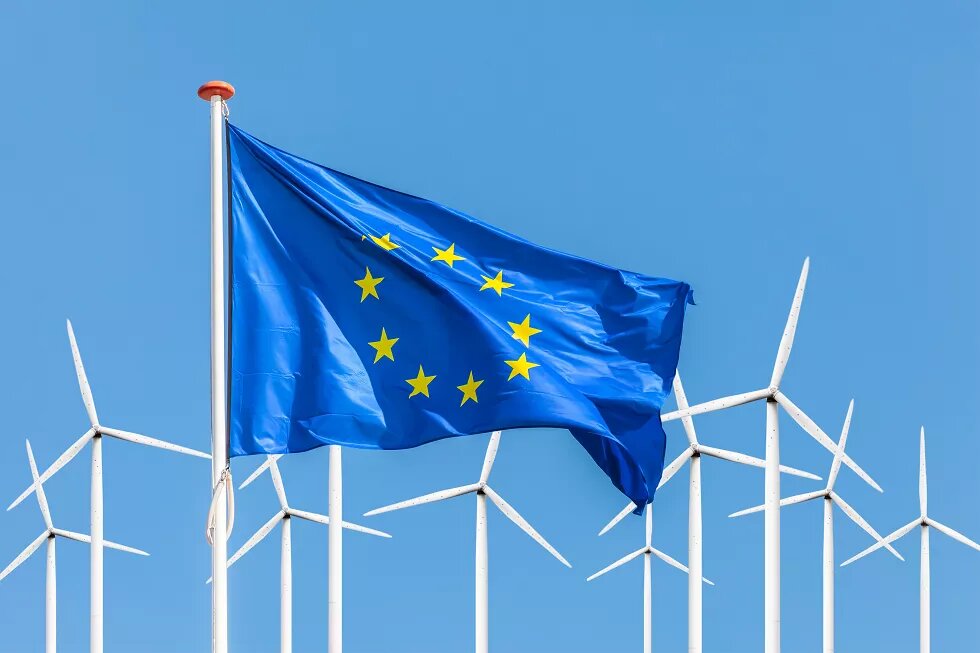The inability to adequately sanction the criminal invasion of Ukraine by Russian President Putin painfully demonstrates Europe’s massive dependencies from fossil fuel imports. Phasing out fossil fuels is no longer “just” about fighting the climate crisis with its devastating consequences for all livelihood on earth. The fossil price crisis of the last year already showed that the transition to renewable energy is also a precondition for Europe’s energy sovereignty and price stability. Putin’s invasion of Ukraine builds on the already known vulnerabilities of dependency, underscoring geopolitical instability and posing a serious threat to security and peace.

Read our dossier "Ending Russia's war in Ukraine: Are we using all economic and energy policy options?"
Literally overnight, Europe is shifting its energy strategy and seeks to become more independent and flexible. Some already sensed the possibility to call the European Green Deal and the clean energy transition into question by demanding outdated solutions, which entail further fossil investments or even reviving nuclear energy. However, phasing out Russian fossil fuels alone will not solve the problem. Dependencies on fossil and nuclear resources are in most cases dependencies on autocratic or unstable states, as well as an exposure to volatile prices. Europe must end its dependencies from these imports and regain its energy sovereignty as fast as possible.
It is crucial for the European Union to avoid short-sighted panicked decisions that will not serve our final goal. Europe can only achieve energy sovereignty by massively ramping up energy efficiency and expanding renewable energies. Increasing energy efficiency by 1 percent reduces 2.6 percent of gas imports. If these savings are applied to Russian imports, each percent efficiency gain translates as 4 percent less Russian gas and 5.5 percent less Russian oil imports, income sources which help finance death and destruction in Ukraine.
The revision of the Energy Efficiency Directive is part of the European Green Deal and of fundamental importance for achieving the target of the European Climate Law, which means a greenhouse gas reduction of at least 55 percent by 2030. The reduction of certificates in the Emission Trading System and the unprecedented expansion of renewable energies are necessary, but will not be sufficient. Energy Efficiency must be improved in all sectors and all member states at the same time. Energy that is not consumed does not have to be generated, transported, converted or paid for.
In its proposal for a new Energy Efficiency Directive, the European Commission already made steps in the right direction by setting a new EU energy savings target, aiming to reduce primary energy consumption by 39 percent compared to 1990 and final energy consumption by 36 percent. To achieve this, the Commission suggests an increase of annual energy-saving obligations from 0.8 percent to 1.5 percent. Unfortunately, the Commission did not dare to set binding targets for each member state. Instead, they suggest that each country sets an indicative target, with the remaining gap being distributed among all member states. Unsurprisingly, this would lead to a race to the bottom, as it would be in the interest of every member state to announce a target as low as possible. For achieving the EU climate goals, significant adjustments need to be made to the Commission’s proposal. On behalf of the Greens/EFA group, I aim to broaden the scope and goals of the new Energy Efficiency Directive.
The public sector must play an exemplary role. Especially energy consumption in public buildings must be addressed. The Commission aims for an annual renovation rate of three percent of all public buildings, not only at government level, but also in municipalities, in administrative buildings as well as in kindergartens and social housing. Especially the latter is a red flag to some member states. In Germany, buildings alone are responsible for 35 percent of energy consumption. Renovation of the building stock and strict standards therefore will not only help to save energy, but also mitigate price crises and reduce dependencies on energy imports. When social housing is addressed, this reduces the burden of low-income households’ energy and heating bills, shielding the most vulnerable from price volatilities.
Transport is responsible for 30 percent of Europe’s final energy consumption, and the rate between final and primary energy consumption is exceptionally poor in this sector. To reduce wasting of energy in transport, policies must steer towards a shift to cycling, walking and collective transport. Individual mobility should use more efficient vehicles, especially small battery powered cars. New ways of urban planning can help to reduce the demand for inefficient modes of transport.
A decentralised energy transition, an efficiency offensive and a "renovation wave" for energy-efficient buildings bear great potential for the labour market throughout Europe. Especially in rural areas, new jobs can be created, be it in the field of renewable energies, the construction industry, transport or the digital economy. However, while digitalisation will reduce the ecological footprint of some sectors, IT hardware and data centres are responsible for the fastest growing waste stream in the world. Moreover, the digital sector accounts for about 3.8 per cent of total greenhouse gas emissions. Having this in mind, it is a welcome step that the European Commission for the first time specifically addresses data centres in the Efficiency Directive. However, it is not sufficient to only take into account extremely large facilities and their utilisation of waste heat. Instead, the aim must be to minimise waste heat in the first place.
A serious flaw in the Commission’s proposal is the continued reliance on fossil gas as efficiency projects using fossil gas may count towards the energy savings target of a member state. Not only has fossil gas no place in a climate-neutral economy, the Commission’s approach completely ignores the extremely climate-damaging methane emissions associated with the extraction, transport and distribution of fossil gas. Energy efficient investments must never be investments into fossil fuels. It is therefore of utmost importance that investments are channelled only into future-proof solutions based on electrification and renewable energies.
The new Energy Efficiency Directive will be our middle- and long-term rulebook for a more energy-efficient Europe. However, both climate and sovereignty demand for short-term measures to compensate for the urgencies we face. Renovations and new technologies take time we do not have to quickly end our dependencies. Therefore, additional measures and campaigns are needed to encourage citizens to adapt their habits with small, but efficient behavioural changes. Lowering the room temperature by one degree Celsius saves six percent of the energy used. Driving less or slower usually only requires a little more time. If we really want to stand with Ukraine, it is time for us to step out of our comfort zone.


